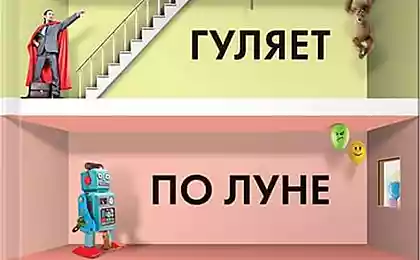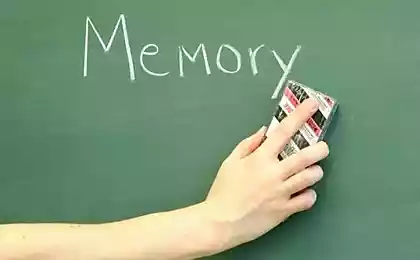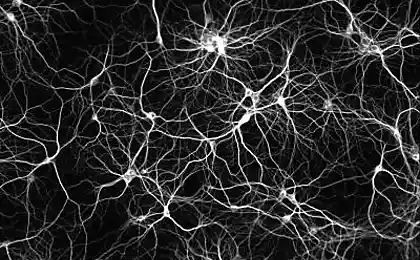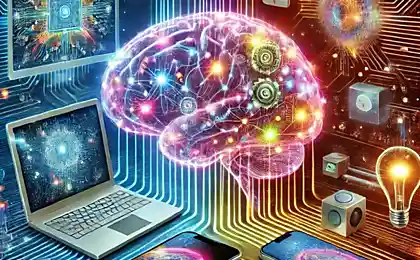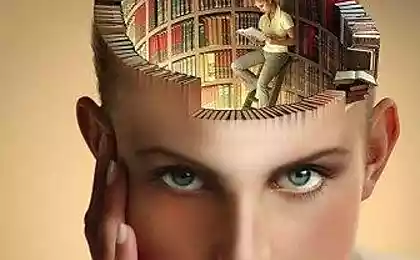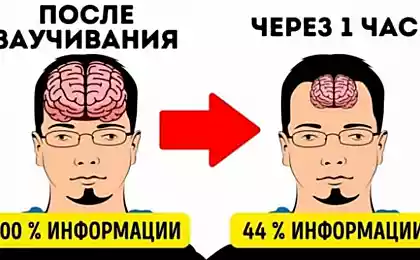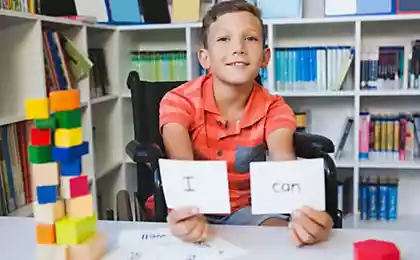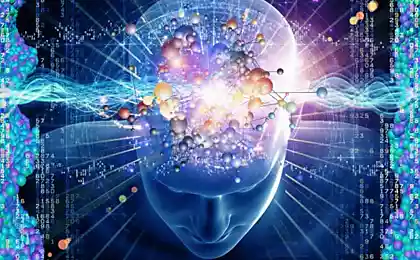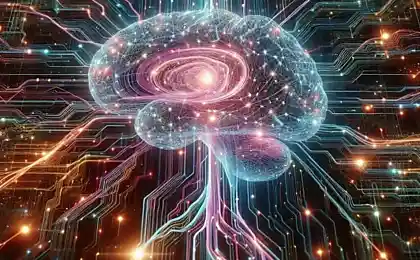591
7 effective methods of storing information
Check whether you are able uchitsya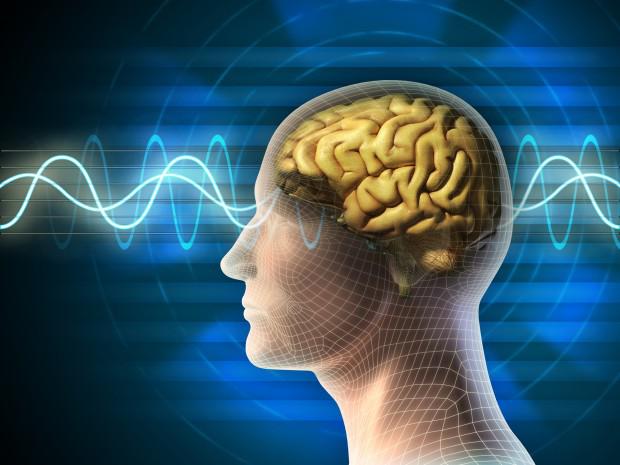
ability to learn is perhaps one of the most important skills of a person, but the most important thing in training, of course, storing the information, the ability to analyze it and apply. If a person is able to learn effectively, it is easier to master the various professions and to apply their knowledge in life. According to some scientists, the methods of storing information which are used in the training of pupils and students, such as memorization of individual sections of textbooks, not too good, because it does not allow students to use the full potential of thinking. Here are some tricks for obtaining and processing information, which can significantly increase the productivity of the learning process.
1. Try to do without shpargalokKogda you need to remember any information, do not rush to get into the Internet or get an outline - better try to restore the required information, referring to memory. This technique strengthens the neural connections between the parts of the brain and develops associative thinking.
2. Take an example from personal opytaStaraytes new information to explain in their own words, to associate it with previously obtained knowledge and incidents from the life. Using this technique will allow you to store information more efficiently and quickly retrieve them from memory due to the large number of associations with events from your experience. For example, if you are trying to learn the essence of such physical phenomena as heat transfer, imagine a cup of coffee warms your palms.
3. Alternate memorized svedeniyaEsli you have to interpret large amounts of information relating to the various branches of knowledge, use the technique of alternation, that is, first learn the information on one subject and then on another, then the first, and so on. Striping helps to avoid such a phenomenon well-known to all students as "porridge in the head" and increases the efficiency of the study subjects, because clearly structured information is much easier to use than a chaotic jumble of facts.
4. Generate your version resheniyNe wait until the teacher will explain the essence of a phenomenon or the principle of technology - it is better to take the initiative and first try to sort out the problem on their own, and only then to discuss the contentious issues with the teacher. The ability to put forward a different version and to calculate the most likely of them certainly come in handy in the future. For example, if there are difficulties in the work, you will be able to explore the options for solutions and choose the most suitable of them, without recourse to the head.
5. Ponder received dannyePosle finishing work on the job or attend classes ask yourself, that was able to realize, and that is not how you can improve the result and as evidenced by the information received.
Researchers from the Harvard Business School found that an orderly analysis significantly increases the efficiency and effectiveness of discussion of problems. In one experiment, experts found that just 15 minutes a day thinking about writing increases productivity by 23%.
6. Use mnemotehnikuDaleko not manage all information associated with real-life examples - for example, if you've never had to deal with the Chinese, the Chinese emperors remember the names of any dynasty in chronological order, is difficult. In this case, to help the so-called mnemonic or mnemonics - a set of methods of assimilation of information by tying it to certain visual images or phrases. One of the most common examples of mnemonic - memorizing the seven primary colors of the solar spectrum by using the phrase "Every hunter wants to know where sits Pheasant" (or "As once Jacques-ringer head broke Lantern"), where the first letter of each word corresponds to the color. < br />
7. Identify gaps in their znaniyahChtoby memorization, and therefore the use of information to be more effective, discuss with your colleagues the information received training. Feedback reveals moments that you do not fully understand, and points to the "white spots" in your presentation about the subject of the discussion. Everyone more or less prone to cognitive errors that may create the impression that the phenomenon studied completely. Questions help colleagues to understand whether or not you know thoroughly the subject of discussion, or is better to learn the materiel.
via factroom.ru

ability to learn is perhaps one of the most important skills of a person, but the most important thing in training, of course, storing the information, the ability to analyze it and apply. If a person is able to learn effectively, it is easier to master the various professions and to apply their knowledge in life. According to some scientists, the methods of storing information which are used in the training of pupils and students, such as memorization of individual sections of textbooks, not too good, because it does not allow students to use the full potential of thinking. Here are some tricks for obtaining and processing information, which can significantly increase the productivity of the learning process.
1. Try to do without shpargalokKogda you need to remember any information, do not rush to get into the Internet or get an outline - better try to restore the required information, referring to memory. This technique strengthens the neural connections between the parts of the brain and develops associative thinking.
2. Take an example from personal opytaStaraytes new information to explain in their own words, to associate it with previously obtained knowledge and incidents from the life. Using this technique will allow you to store information more efficiently and quickly retrieve them from memory due to the large number of associations with events from your experience. For example, if you are trying to learn the essence of such physical phenomena as heat transfer, imagine a cup of coffee warms your palms.
3. Alternate memorized svedeniyaEsli you have to interpret large amounts of information relating to the various branches of knowledge, use the technique of alternation, that is, first learn the information on one subject and then on another, then the first, and so on. Striping helps to avoid such a phenomenon well-known to all students as "porridge in the head" and increases the efficiency of the study subjects, because clearly structured information is much easier to use than a chaotic jumble of facts.
4. Generate your version resheniyNe wait until the teacher will explain the essence of a phenomenon or the principle of technology - it is better to take the initiative and first try to sort out the problem on their own, and only then to discuss the contentious issues with the teacher. The ability to put forward a different version and to calculate the most likely of them certainly come in handy in the future. For example, if there are difficulties in the work, you will be able to explore the options for solutions and choose the most suitable of them, without recourse to the head.
5. Ponder received dannyePosle finishing work on the job or attend classes ask yourself, that was able to realize, and that is not how you can improve the result and as evidenced by the information received.
Researchers from the Harvard Business School found that an orderly analysis significantly increases the efficiency and effectiveness of discussion of problems. In one experiment, experts found that just 15 minutes a day thinking about writing increases productivity by 23%.
6. Use mnemotehnikuDaleko not manage all information associated with real-life examples - for example, if you've never had to deal with the Chinese, the Chinese emperors remember the names of any dynasty in chronological order, is difficult. In this case, to help the so-called mnemonic or mnemonics - a set of methods of assimilation of information by tying it to certain visual images or phrases. One of the most common examples of mnemonic - memorizing the seven primary colors of the solar spectrum by using the phrase "Every hunter wants to know where sits Pheasant" (or "As once Jacques-ringer head broke Lantern"), where the first letter of each word corresponds to the color. < br />
7. Identify gaps in their znaniyahChtoby memorization, and therefore the use of information to be more effective, discuss with your colleagues the information received training. Feedback reveals moments that you do not fully understand, and points to the "white spots" in your presentation about the subject of the discussion. Everyone more or less prone to cognitive errors that may create the impression that the phenomenon studied completely. Questions help colleagues to understand whether or not you know thoroughly the subject of discussion, or is better to learn the materiel.
via factroom.ru
Several centuries ago, garden gnomes were real people
Sir Christopher Lee is the only actors from "The Lord of the Rings" who personally met with Tolkien
